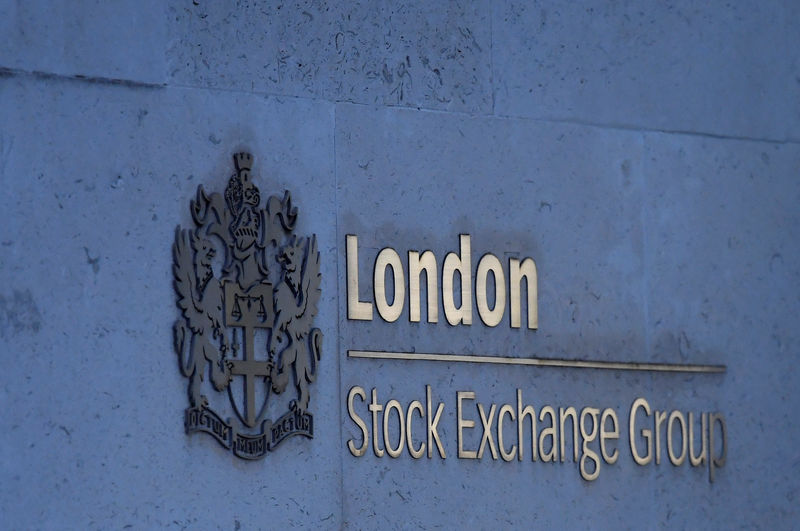By Josephine Mason
LONDON (Reuters) - Britain's blue chip stocks were lower in early deals as the stronger pound pushed multinationals lower after Prime Minister Theresa May's deal to leave the European Union suffered an overwhelming defeat and weak results from Pearson weighed.
The top share index (FTSE) was down 0.1 percent at 0848 GMT, lagging European peers as the sterling hit its highest since November, a day after British lawmakers overwhelmingly defeated May's Brexit divorce deal.
The prime minister's historic loss was seen as reducing the chance of a hard Brexit even as uncertainty ahead of a no confidence vote in May's government on Wednesday evening kept trading muted.
Consumer staples which earn their revenue abroad in foreign currency accounted for the biggest drop, with oil and gas (FTNMX0530) down 0.5 percent. Blue-chip stocks generate 70 percent of their income overseas.
The domestically focused midcaps (FTMC), which make half of their income at home, were up 0.4 percent. Ireland's top share index (ISEQ), one of the barometers for Brexit sentiment, was up 0.5 percent.
A hard exit is "a lower probability risk than it was, but I don't think we can completely discount it. The market isn't completely discounting it," said Caroline Simmons, deputy head of the UK investment office of UBS Global Wealth Management.
Housebuilders, seen to be most at risk from a weaker UK economy amid Brexit uncertainty, led the gainers after Bovis Homes (L:BVS) forecast better-than-expected full year profits.
Persimmon (L:PSN), Taylor Wimpey (L:TW), Barratt (L:BDEV) and Berkeley Group (L:BKGH) were all up between 2.2 and 2.5 percent. Midcap Bovis was up 3.6 percent.
"The potential for a softer Brexit outcome may neutralize any negative impact of higher uncertainty and the vote of no confidence," said Kallum Pickering, senior economist at Berenberg.
In corporate moves, Pearson (L:PSON) topped the fallers after its full-year outlook. The company's forecast for full-year profits was in line with expectations, but pointed to weaker-than-expected revenues.
Liberum analysts said the guidance was possible only due to a massive savings drive.

Investors shunned Reckitt Benckiser (L:RB) after it announced its chairman was retiring after more than 30 years at the firm. He is considered an architect of the company's push to become a global consumer health products company.